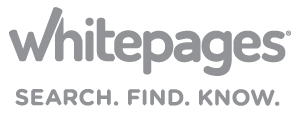What is the Role of Online Directories in Local SEO?
Local search engine optimization (SEO) can make you more visible in local searches on Google and other search engines. It’s particularly helpful for brick-and-mortar businesses as you can attract more local customers.
Local SEO uses a variety of digital marketing tactics to optimize your digital presence for local searches. But one aspect that’s often overlooked is listing your business in online directories.
Online directories can help people find you, and they can help your local SEO efforts, too. How? That’s what we’ll look at in this article. We’ll also show you four popular business directories to get listed in and give you tips on how to optimize your listings for local searches.
What Are Online Directories?
Essentially, online directories (also called web directories or search directories) are digital Yellow Pages. They’re lists of contact details, website addresses, and more. There are many types, including business directories and general directories (like Whitepages).
Business directories list information like a business’s name, contact info, and opening hours. Some listing services also let you upload photos, take bookings, respond to customer reviews, and more.
Directories group businesses based on factors like their location, industry, and size. This makes it easier for potential customers to find the right business for their needs.
How Do Online Directories Help Local SEO?
There are many benefits of B2C and B2B online directories for local SEO. First, Google uses location-based factors to give people relevant local search results. Since online business directories include your location, they’re one of the best ways to advertise your local relevance to Google.
Listing your business also makes you more visible online to potential customers and search engines. Google indexes each directory separately, which means you can get multiple backlinks to your website. This can help you rank higher in local searches.
What’s more, by securing listings in directories with a high domain rating, you’ll tell search engines you’re a trustworthy business. This can help you rank higher and also build customer trust. Many directories also let customers leave reviews, which is another way to build trust.
Can Online Directories Harm Local SEO?
It depends. Google penalizes websites that spam users, and even if you don’t do this, there are some directories with lots of websites that do. Many of these directories are also unmanaged and unmoderated.
Before listing your business in an online directory, make sure it’s relevant to your business and has a good reputation (more on these later). If Google doesn’t trust it, you won’t get the benefits of listing. It’s also best to avoid paid directories, as Google penalizes websites that pay for links.
Popular Online Directories for Businesses
Below are four popular online business directories. For local SEO, they’re a great place to start. They have a lot of monthly users, they’re trustworthy, and you can advertise your location.
- Google Business
The first place you list your business should be Google Business (formerly Google My Business). Google has by far the largest share of Internet search traffic, so a free Google Business profile is a great way to reach a wider audience.
You’ll also get great features like the ability to add posts to your profile. Plus, you can see which keywords your customer base is using to find you.
For example, if you sell remote desktop software, your customers might use keywords like “remote desktop connection download.” You can use these keywords to create relevant content for your profile as well as your blog.
- Bing Places for Business
Bing lets you import your existing Google Business profile, so it’s a no-brainer to secure a listing here, too. You can also add multiple locations, helping you target your local market everywhere you operate.
Bing verifies listings, which keeps your profile safe from unauthorized changes. It also boosts your trustworthiness. In addition, Bing sources data from across the Internet to complement the information you add yourself.
- Yelp for Business
You can create a free listing on Yelp for Business. There’s also the option of paying to advertise on Yelp, although this isn’t necessary for local SEO.
A big benefit of Yelp is that your business page comes with performance tracking and analytics. This helps you learn more about the people visiting your page, helping you hone your SEO marketing strategy. Plus, like the other directories on our list, it comes with direct messaging. It’s easy for customers to get a quote, contact sales, and more.
- Yell Business
Yell (formerly Yellow Pages) lets you create a separate profile for each business type or location for free. You’ll also get access to digital marketing tools, and you can manage your profiles from the Yell app. Your listings will also appear on partner sites, including Amazon Alexa, Apple Maps, and Bing Maps.
Yell Business also has a paid tier that lets you add job postings and extra content to your profile. Plus, you’ll get an analytics dashboard and paid advertising, and your listings will appear above free listings.
Tips to Optimize Your Business Directory Listings for Local SEO
To make the most of your business directory listings, you need to choose the right directories and optimize your listings for local SEO. Below are some tips on how to do that.
Ensure your listings are complete, accurate, and up-to-date
Every listing you create should have the same information. If they don’t, this can confuse potential customers and search engines. Google might even think you’re untrustworthy.
It’s also vital that your listings are complete. At a minimum, that means your name, address, and phone number (NAP), as well as a link to your website.
Finally, make sure your listings are accurate and up-to-date. Why are accurate directory listings important? Inaccurate or outdated information puts off potential customers, and search engines might flag you as spam and penalize you.
Make sure the listing is relevant to your business and audience
People look in an online directory when they have a specific need. If someone clicks on a restaurant directory, they’re looking for somewhere to eat. They don’t expect to find a landscape business or a software company.
Choose a directory that matches your industry. Otherwise, you’ll confuse both people and search engines and harm your local SEO efforts.
For example, if you’re a retail business, you might choose a marketplace directory. If you offer remote desktop software for iPad and other devices, you would choose a technology or software business directory. Also, list your business in local directories for each area you operate in. They’re relevant and local.
Encourage customer reviews
Positive customer reviews are a great way to build trust with your audience. They also show Google that you’re a credible business, which helps your ranking in SERPs.
List your business in directories that let customers leave reviews. Then, encourage customers to rate you. This could be a request at the end of a phone call or email or a link on your website.
Also, when customers do leave reviews, it’s good practice to respond to them. If they’re positive, thank the customers for taking the time to write them. If they’re negative, ask if there’s anything you can do to make it right. Responding to reviews shows customers you care and further demonstrates your credibility to search engines.
Incorporate local keywords
Your listings should also incorporate the keywords your target customers use in local searches. You can use the keyword tool on Google Business or tools like Ahrefs and SEMrush.
The keywords you choose should be relevant to your business. As an example, say you’re a software company that specializes in VoIP solutions. If most of your customers live in America, your keyword could be “VoIP software America.” If your solution is for small businesses, your keyword could be “business phone VoIP.”
Be careful not to “keyword stuff” (that is, using keywords excessively to try to rank higher in SERPs). Here’s a hypothetical example for the keyword “real estate”:
We’re a great real estate company. Real estate is our passion. If you’re looking for the best real estate company, look no further. Our real estate agents are world-class.
Keyword stuffing affects readability, and Google penalizes you for doing it. Use keywords naturally, and don’t go overboard.
Only list your business in high-quality directories
Finally, check the reputation of online directories before you list your business in them. Ask questions like:
- Are their backlink profiles high-quality or full of spam?
- Are the businesses on them legitimate?
- Do they verify listings?
Also, check their Moz Domain Authority. Moz developed domain authority (DA) to tell you how likely a website is to rank highly in SERPs on a scale of 0-100. The higher the score, the higher the likelihood of ranking. For local SEO, you want to be in a directory with a high DA.
Takeaway
As you’ve seen, online directories help local SEO in several ways. It does depend on the directory, though, so choose directories that are relevant and trusted by users and search engines alike. The four popular business directories we looked at in this article are a great place to start. It’s also worth looking for local directories for your area(s).
By taking advantage of online directories, you can reach more customers and help your local SEO efforts, too. So, get listed!




